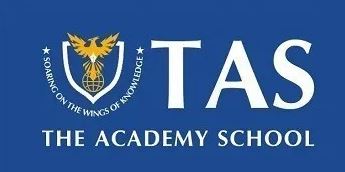
By Ms. Indira Ramachandran, Principal At TAS, Pune
In 2023, we witnessed a transformation in the ever-evolving landscape of education with the integration of adaptive learning platforms and digital tools that allowed students to progress at their own pace. However, the year 2024 is expected to bring even more significant changes in this regard. As the world continues to rapidly evolve with technological advancements and globalization, the education sector is also facing significant changes. From practical learning to personalized education, the future of education in 2024 will undoubtedly be vastly different from what we know today.
There will be a greater emphasis on developing practical skills such as critical thinking, problem-solving, creativity, and communication in the education sector. These skills are not easily replaceable by machines and are essential for success in the future job market. By 2024, we can expect to see a shift towards incorporating these skills into the curriculum and providing students with opportunities to develop them.
To bridge the gap between education and the job market, there will be an increased collaboration between educational institutions and industry professionals. This will help students gain real-world experience and skills that are relevant to their chosen field of study. By 2024, we can expect to see more internships and partnerships with companies for hands-on learning opportunities.
The traditional one-size-fits-all approach to education is becoming obsolete, and we can expect to see a significant shift toward personalized learning. With the help of artificial intelligence and data analytics, educators will be able to customize learning experiences for each student based on their strengths, weaknesses, and interests. This will enable students to learn at their own pace and in a way that suits their learning style, leading to better academic performance and engagement. In addition to personalized learning, we can also expect to see a shift towards personalized assessment methods. Traditional exams may no longer be the sole measure of a student’s academic performance. Instead, educators will utilize various methods such as project-based assessments, portfolios, and continuous evaluation to assess student learning. This will provide a more comprehensive understanding of a student’s capabilities and progress. Imagine a future where students no longer have to conform to a one-size-fits-all curriculum. Instead, they will have access to personalized learning plans that adapt in real time based on their progress and areas that require more attention. This approach will not only foster a deeper understanding of the subject matter but also enhance engagement and motivation among students.
Thanks to advancements in technology, education will become more accessible to individuals from all backgrounds. With the rise of digital learning, students who were previously unable to attend traditional universities due to financial or geographical constraints will have the opportunity to get a quality education. This will also help bridge the education gap between developed and developing countries, leading to a more globally educated population. Immersive learning experiences, such as virtual reality (VR) and augmented reality (AR), will become more accessible and widely used in 2024. These technologies provide students with the opportunity to explore realistic simulations, visit historical landmarks, or even travel to outer space without leaving the classroom. Immersive learning experiences not only make education more engaging but also enhance understanding and retention of complex concepts. Incorporating elements of gaming into the learning process, also known as gamification, is expected to gain more traction in the education sector by 2024. This method has already proven to be effective in engaging students and enhancing their learning experience. By incorporating game-like features into educational content, students will be more motivated to learn and retain information better.
In today’s fast-paced world, where skills become obsolete rapidly, continuous learning has become crucial for personal and professional growth. We can expect to see a significant emphasis on lifelong learning in the education sector. This means that education will not be limited to just the early years of life but will continue throughout one’s career through various courses, workshops, and learning opportunities.
The future of education in 2024 looks promising, however, with these changes also come challenges such as the need for effective regulation, ensuring equal access to education for all, and preparing students for an ever-changing job market. The future of education will require a shift in mindset and traditional educational paradigms. Embracing new pedagogical approaches, such as project-based learning, interdisciplinary studies, and student-centered approaches, will be essential to foster creativity, critical thinking, and problem-solving skills. Education systems must be agile and flexible to adapt to the changing needs of the workforce and society. While these challenges and concerns may seem daunting, they also provide an opportunity for growth and innovation. By addressing these issues proactively, stakeholders in education can shape a future where every student has access to quality education, and where learning is engaging, inclusive, and empowering. We are on the cusp of a transformative era. The advancements and innovations we have witnessed in the past year alone have set the stage for an educational landscape that is vastly different from what we have known in 2023.